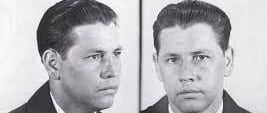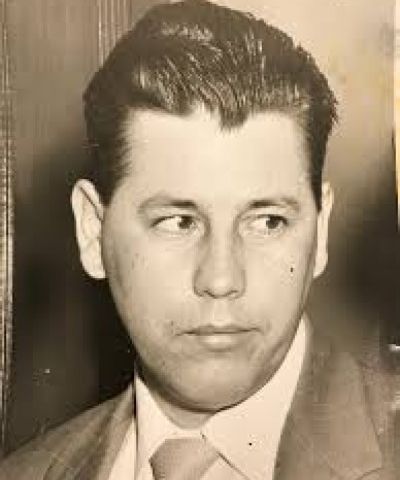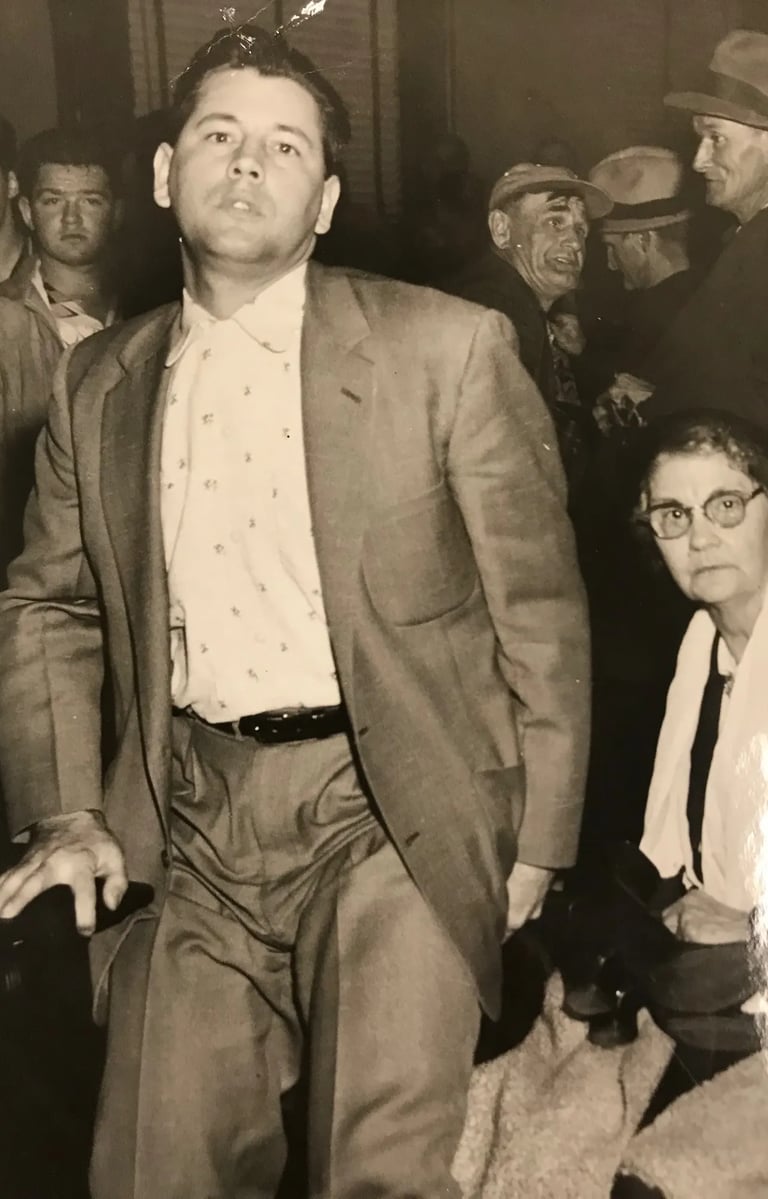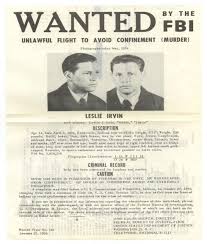Caged Beast: The Unmaking of Leslie “Mad Dog” Irvin
Before the term “serial killer” entered the American vocabulary, Leslie “Mad Dog” Irvin had already carved his name into it with bullets and blood. This post unearths the chilling story of a man who killed without remorse, whose trial would go on to reshape the boundaries of justice in the face of fear-fueled media. Through raw commentary and unsettling detail, we explore Irvin’s cold precision, the paranoia that infected an entire town, and a legal system forced to confront its own reflection. Step into the mind of a killer — and the court that nearly became one too.
GRIM REALITYDISTURBING CASESSINS OF THE FLESH
5/20/20253 min read


He was the kind of killer who didn’t need a reason. He hunted for pleasure, walked with confidence, and smiled at death like it was an old friend. Leslie "Mad Dog" Irvin didn’t kill to hide secrets or settle scores — he killed because he could. In the late 1950s, this soft-spoken man terrorized southern Indiana with a string of execution-style murders, becoming one of the earliest faces of the modern American serial killer.
But it wasn’t just his crimes that changed history. It was what came after — a courtroom drama that would rewrite how we understand media influence, fair trials, and justice under pressure.
Welcome to the story of a man without remorse, a town soaked in fear, and a system caught between vengeance and the law.
A String of Dead Men
In late 1954 and early 1955, Evansville, Indiana, was a quiet midwestern town. Then came Irvin. Masked, armed, and methodical, he targeted gas stations and small businesses under the cover of night. Each robbery ended the same: a bullet to the head, a corpse on the floor, and a growing sense that something monstrous was hunting in the dark.
His killing spree left six victims across a region unprepared for the terror. These weren't crimes of desperation — the money stolen was minimal. These were thrill kills. Executions. The work of someone who viewed life as disposable.
Irvin was arrested in 1955 after being caught with stolen goods and a loaded weapon. But it was his confession — and the ballistics matching his gun to the murders — that sealed the case. He confessed in chilling detail to each murder, smiling as he recalled where the bullets went.
Mad Dog Behind Glass
Nicknamed “Mad Dog” by the media, Irvin was painted as less than human-a — a beast, a monster, a shadow that walked among men. Newspapers ran his photo daily. Headlines screamed his guilt before a jury ever did. People weren’t asking if he was guilty. They were asking when he’d be fried.
And that became the problem.
Irvin’s defense claimed he couldn't get a fair trial in a town already drenched in fear and bias. The press had essentially convicted him. The trial, they argued, was a media circus, not a legal proceeding. The U.S. Supreme Court eventually agreed, ruling in Irvin v. Dowd (1961) that a defendant's right to a fair trial had been denied. It was the first time in history that the high court overturned a conviction due to pretrial publicity.
This wasn’t just about murder anymore. It was about America looking in the mirror and asking: Can justice survive fear?
Locked Up But Not Forgotten
Though his conviction was overturned, Leslie Irvin was retried in a different venue and still found guilty of murder. He spent the rest of his life behind bars, dying in prison in 1983. But his legacy remains far larger than his crimes.
He was one of the first modern serial killers recognized by the media, before the term “serial killer” was even in popular use. He laid the groundwork for future courtroom battles involving media influence, public perception, and fair trial rights.
His case became a chilling blueprint for both killers and the courts. And beneath it all was the truth no one wanted to say out loud: Mad Dog was human. That’s what made him so terrifying. He wasn’t a monster born from nightmares. He was a man — flesh and blood — walking beside us, unnoticed until it was too late.
A World Still Haunted
Irvin’s story fits neatly into the festering wound that is societal decay and moral collapse. He was a symptom of something deeper — a culture obsessed with blood but incapable of confronting the void that creates men like him. A quiet desperation hides under polite smiles and white-picket fences.
And like many in the darkest corners of this world, Leslie Irvin never found faith, never sought redemption. His soul stayed silent. Cold. Buried behind steel and glass.
Because sometimes, there is no other side. Sometimes the darkness just wins.
Sources:
Irvin v. Dowd, 366 U.S. 717 (1961)
Newton, Michael. The Encyclopedia of Serial Killers
Indiana State Archives and Court Records
Murderpedia - Leslie Irvin






Despair
A dark exploration of societal decay and despair.
Void
+1234567890
© 2025. All rights reserved.
Any comments, business inquiries, ideas, or stories, let us know
